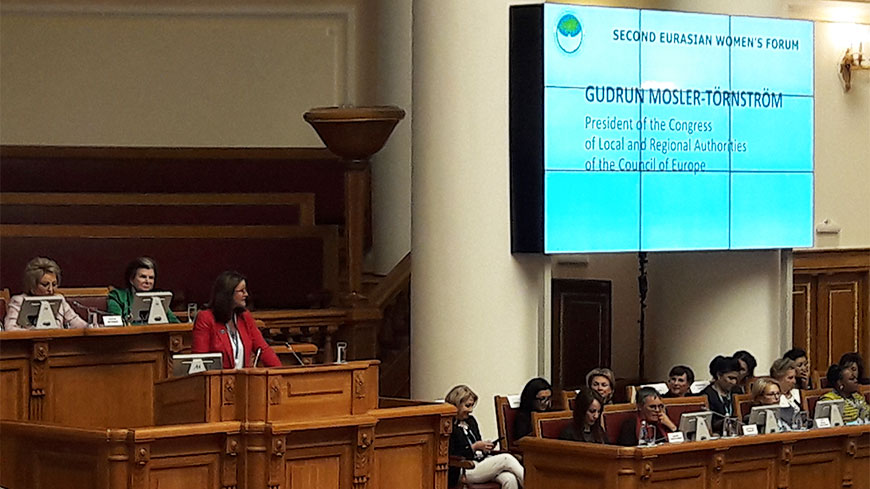"Women's participation and representation, as well as gender equality, remain at the top of the political agenda in Europe," said Congress President Gudrun Mosler-Törnström addressing participants at the opening of the Eurasian Women's Forum in St Petersburg, Russian Federation, on 20 September 2018.
"The fair and equitable participation of women and men in public life is fundamental to democracy," she stressed underlining the commitment of the Council of Europe, whose three assemblies - the Congress of Local and Regional Authorities, the Parliamentary Assembly and the Committee of Ministers - are now chaired by women. " In the Congress, we have enforced a 30 per cent minimum requirement for women’s participation in national delegations. As a result, over the past five years alone, the representation of women in national delegations rose from 31% to 42%, and women constitute today 65% of the Congress executive leadership," she explained.
However, the President of the Congress stressed that, despite the progress made, women still remain largely under-represented at all levels of government and in all spheres of society. " Good laws are not enough to change the biased perception of the women’s role in society, which is proving to be a persistent challenge," she said stressing the importance of the local and regional levels in this regard. "If we do not achieve a high representation of women at the local level, we will not achieve parity in national parliaments and governments. As this level is closest to citizens, it makes it easier to combat prejudices against women and it is often a stepping stone for their national careers. »
Solutions may be based on the establishment of quotas or balanced representation, and above all, must be the concern of the whole society. They also require the commitment of local, regional and central governments, political parties and the media, as well as the possibility of creating platforms for dialogue and networking between women - but also between women and men.
In line with its work in this field, the Congress will contribute to the World Forum for Democracy, organised by the Council of Europe in Strasbourg in November 2018, under the theme "Gender Equality : Whose battle?".




